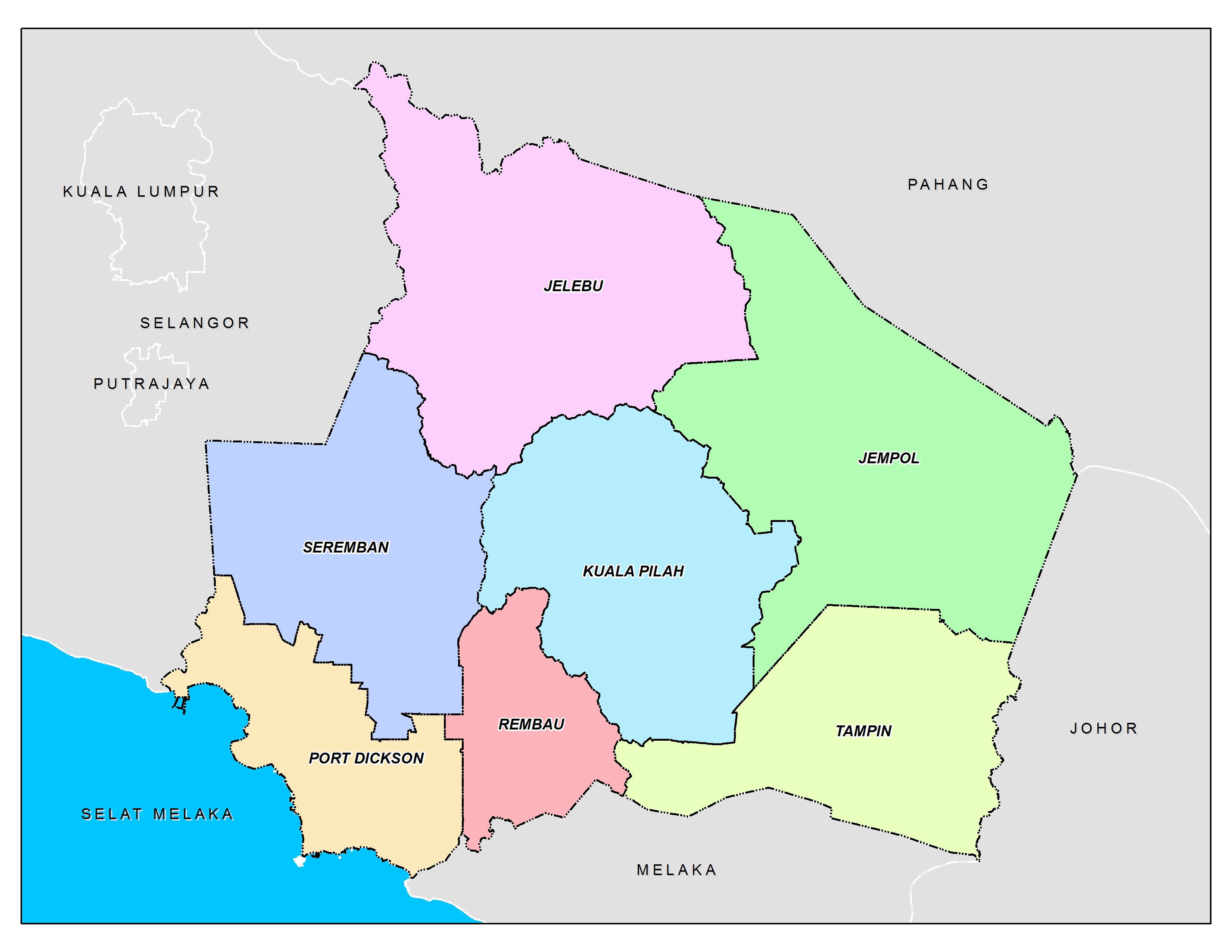
Negeri Sembilan is inhabited by a multiracial society that exceeds 1 million persons with the Malay community making up the majority with 61.5 percent. The Chinese community makes up 22.9 percent, the Indian community with 15.1 percent, while other ethnicities make up 0.5 percent.
Negeri Sembilan has the distinct uniqueness of culture and tradition. It is generally known that the uniqueness stems from its tradition of Adat Perpatih (or Perpatih Laws) which is handed down from generation to generation.
Negeri Sembilan is ruled by the Yang di-Pertuan Besar Negeri Sembilan and the monarchy system is modelled according to Adat Perpatih. During the 18th Century, the Minangkabau people from Sumatera emigrated to Negeri Sembilan bringing their family along. In this new land, they lived in groups according to familial relationships. The name Negeri Sembilan means nine states, but it was agreed that this name did not mean that Negeri Sembilan is comprised of nine specific regions.
According to Adat Perpatih, Negeri Sembilan is divided into territories that are called luhak or luak. Traditionally, there has always been four major districts that are controlled by dignitaries called Undang Berempat (the four dignitaries). The four original territories are Sungai Ujong, Rembau, Jelebu and Johol. There are a few lesser dignitaries for small regions that are associated with the four districts. The Undang Berempat are leaders of their respective luak and the leaders for the other luak are called Penghulu (chiefs). Dignitaries under the Undang are known as Lembaga, Buapak and Perut. Lembaga are the leaders of local tribes. There are 12 tribes in total with one luak having around 4 tribes. The Lembaga is responsible for their respective tribes pertaining to peace, resolving conflicts between tribes, controlling and refereeing the division of inheritance as well as being an intermediary between tribe members and the Undang.
The Buapak community consists of members that are called Perut. The members of each Perut will choose a leader which is the Buapak. There are quite a few Buapak and they have the same tasks as a Lembaga. The only point of difference being that Buapak can only assert their power on the members of its Perut. A Buapak is also responsible in performing customs related to marriage, shaving of a childs head, circumcision and divorce. Negeri Sembilan is made up of nine states which is Sungai Ujong, Rembau, Johol, Jelebu, Jempol, Seri Menanti, Inas, Terachi and Gunung Pasir. Below is the list of districts in Negeri Sembilan which has a dignitary.
1. Sungai Ujong
Divided into two, with the inland region ruled by Datuk Kelana and the middle of Linggi River ruled by Dato’ Syahbandar.
2. Sungai Linggi
Small district that was taken from Sungai Ujong. Ruled by Datuk Muda Linggi.
3. Sungai Raya Lukut
Both regions were explored by the Bugis people
4. Rembau
Only has one dignitary, which is an Undang.
5. Tampin
A district that was taken from Rembau and is ruled by Tuanku Besar Tampin.
6. Inas and Gemenceh
Two small districts that was taken from Johol. Datuk Inas and Datuk Gemencheh recognises the Undang Johol as their leader.
7. Jelebu
Has one dignitary which is called Undang.
According to Adat Perpatih¸ “Customs bring out the good and eliminates the bad”. That is what it tries to portray and it serves as a systematic rule based on community harmony.
The Adat Perpatih that started in the 13th century was practiced in order to negate conflict and shape develop a community that is harmonious, integrated and developed.
Customs are not just about marriage, eating and coronations, but it is a way of life that should be nurtured and protected until today.
